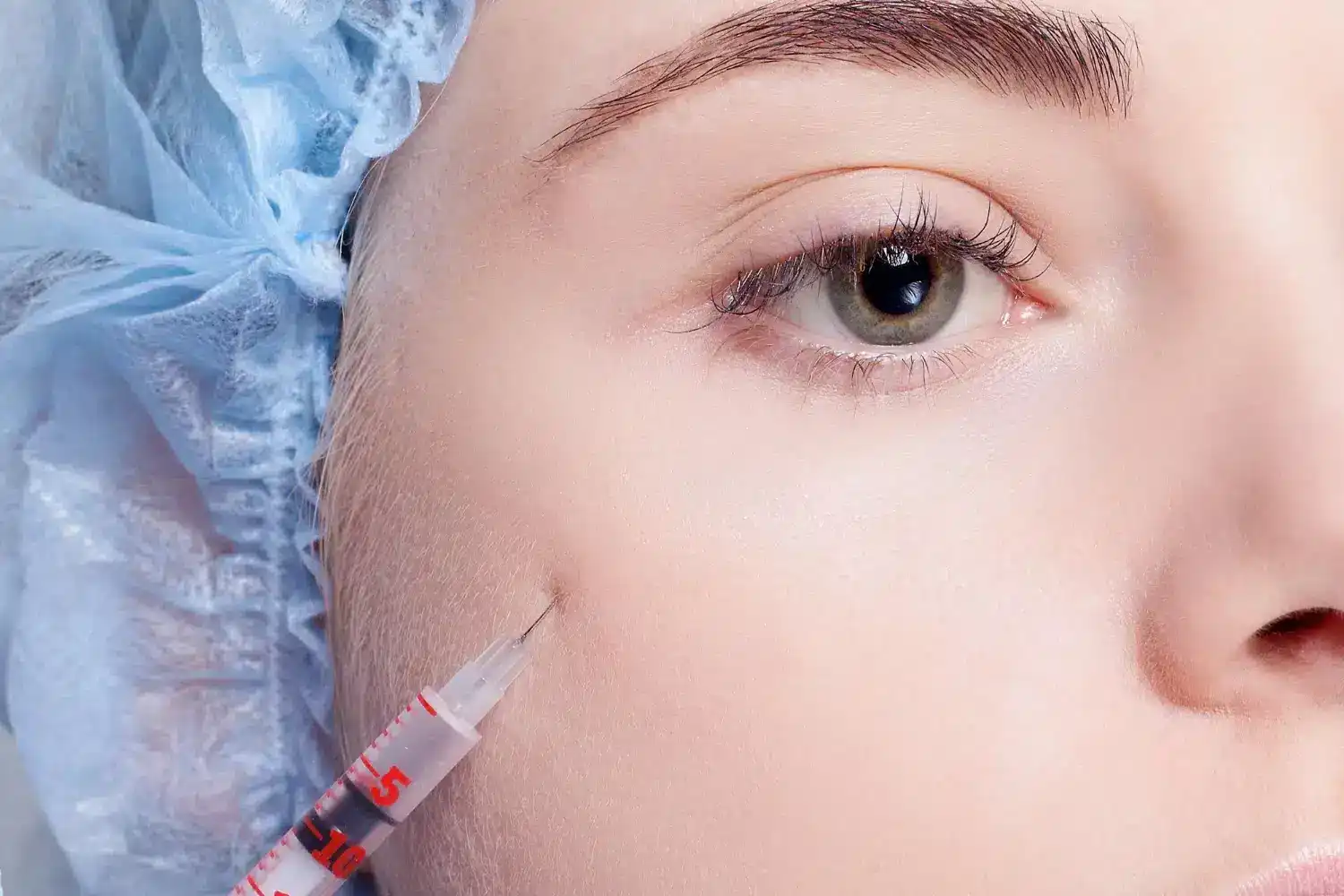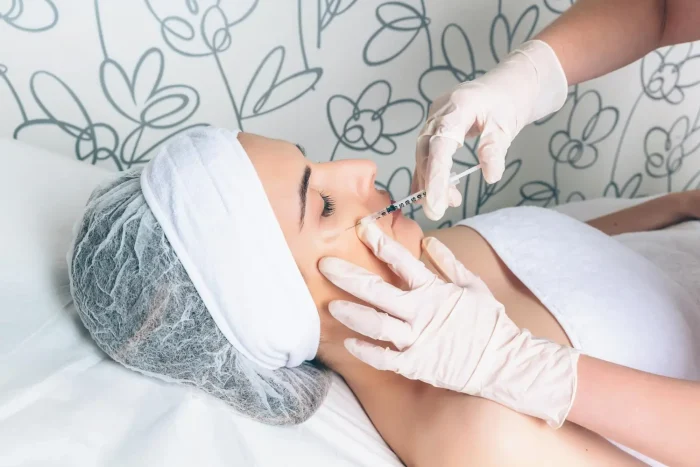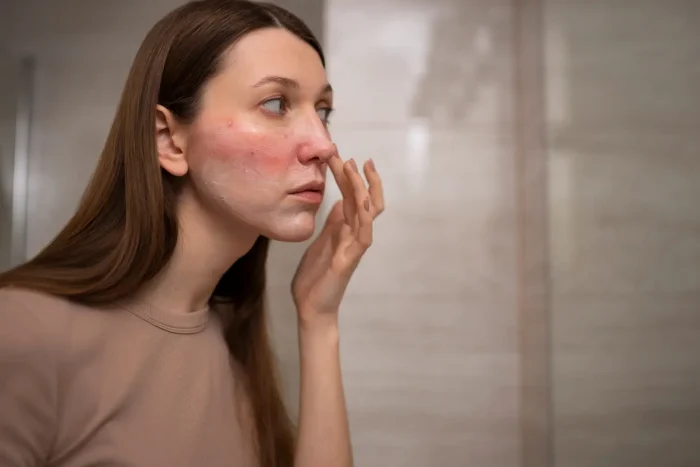
Nabota Side Effects – What To Look Out For
David Fuller
Last Updated On: June 17, 2024
In 2016 alone, over 7 million people received botulinum toxin injections in the United States, making it the country’s most popular nonsurgical cosmetic procedure. However, like any medical intervention, botulinum toxins come with potential side effects. These risks underscore the importance of informed decision-making when considering botulinum toxin treatments.
Among the various brands available, Nabota stands out. Its rigorous production process ensures safety and efficacy. Nabota’s unique characteristics make it a compelling choice for aesthetic and therapeutic applications.
In this article, we’ll examine the possible side effects of Nabota and how to manage these if they start to appear properly.
Key Takeaways
- Nabota, a botulinum toxin type A product, is used for cosmetic and therapeutic purposes.
- Common side effects of Nabota include temporary muscle weakness, pain at the injection site, and bruising.
- Rare but serious side effects may include difficulty swallowing, speaking, or breathing and allergic reactions.
- Understanding the mechanisms and risk factors associated with Nabota side effects is crucial for safe use.
- Close monitoring, patient education, and informed consent are essential for managing Nabota’s side effects.
About: Operating since 2016, Med Supply Solutions is known for being one of the industry’s top and trusted suppliers of cosmetic and viscosupplementation products. If you’re looking to buy Nabota online, contact our sales department for more information.
Common Side Effects of Nabota
Users of Nabota may experience side effects ranging from mild to more noticeable issues, such as muscle weakness, tiredness, flu-like symptoms, localized pain, headaches, and urinary system problems. Red spots, bruising, coughing fits, and fever are also possible.

Regulatory bodies have also warned against the unauthorized use of Nabota due to potential serious health issues. Understanding these side effects is crucial for safely managing treatments and weighing Nabota versus Botox options.
Frequency of Occurrence
Medical professionals should understand how to monitor better and manage patient outcomes when addressing the frequency of side effects from Nabota treatments.
| Side Effect | Frequency of Occurrence (%) |
| Muscle weakness | Not precisely quantified, but commonly reported |
| Tiredness | Common |
| Flu-like symptoms | Reported, specific frequency not provided |
| Injection site reactions (redness, swelling, pain) | Commonly observed |
| Headache | Reported among recipients |
| Nasopharyngitis | Data not specified |
| Urinary tract infection | Reported, without specific frequency |
| Cough | Occasionally reported |
| Oropharyngeal pain, Rhinitis allergic, Folliculitis, Pruritus | 9.5% of subjects in reported cases |
| Redness and bruising at the injection site | Typical, but specific numbers vary |
Rare but Serious Side Effects of Nabota
Nabota injections may lead to rare yet severe side effects requiring urgent medical attention, including muscle weakness beyond the injection site and persistent flu-like symptoms. Health regulatory authorities highlighted the importance of appropriately using Botulinum Toxin Type A products.

Though Nabota injections have been approved by the FDA (under Jeuveau), they can still cause adverse effects. Some of these may need quick medical help. Here are the signs you should not ignore:
- Trouble breathing or swallowing shows the treatment might affect muscles beyond the target area.
- Severe muscle weakness can make it hard to move or maintain balance. Although this is rare, it needs to be checked quickly.
- Vision changes, like blurred vision or drooping eyelids, could occur if Nabota affects nearby muscles.
- Speech difficulties may appear if the throat muscles are weakened.
- Skin rashes or intense itching suggest an allergic reaction to Nabota.
- Swelling at the injection site that’s bad or lasts long could mean an infection.
- Fever following an injection might also point to an infection.
Mechanisms and Risk Factors
Nabota blocks nerve and muscle activity, alleviating conditions like wry neck or cerebral palsy foot deformity. However, it may cause unintended effects like muscle weakness or tiredness. It targets specific muscles but can affect adjacent ones, leading to localized reactions like redness and swelling.

Patient factors like health status and age can heighten side effect risks. Understanding Nabota’s mechanisms and potential reactions is crucial for patient care, as it explains why some experience flu-like symptoms or headaches post-treatment, stemming from temporary changes in muscle function.
Patient Populations at Higher Risk
Knowing the factors that can raise the chances of side effects from Nabota leads us to identify specific groups who might be more at risk. These individuals may experience a higher frequency or severity of adverse reactions following Nabota treatments.
- People with muscle or nerve conditions such as ALS, myasthenia gravis, or Lambert-Eaton syndrome
- Individuals with breathing problems like asthma or emphysema
- Patients with a history of allergic reactions to any botulinum toxin product
- Those being treated for urinary tract infections or issues
- Children treated for muscle spasms, including those with cerebral palsy
- Seniors
- People taking medications that interact negatively with Botulinum toxins, including some antibiotics and muscle relaxants
- Individuals with a history of heart disease
Monitoring and Managing Nabota Side Effects
After Nabota injections, close monitoring for side effects is essential. Patients may experience muscle weakness, tiredness, difficulty swallowing, or breathing problems. Prioritize patient history review, educate patients on potential side effects, and advise against massaging the treated areas.
Patients should stay upright post-injection and report any side effects promptly. They should also schedule follow-up appointments, maintain accurate records, use precise injection techniques, and consider lower doses for certain patients. It is crucial to provide detailed aftercare instructions, especially when comparing products like Nabota vs. Dysport, and discuss the signs of severe side effects requiring urgent medical attention.
Conclusion
Like other botulinum toxin products, Nabota has the potential to cause both common and rare but serious side effects. Understanding the mechanisms of these side effects, identifying risk factors, and implementing appropriate monitoring and management strategies are crucial for the safe and effective use of Nabota.
Patient education, informed consent, and thorough pre-treatment assessments are essential to ensuring positive outcomes and minimizing the risks associated with Nabota injections. By staying informed about potential side effects and adhering to clinical guidelines, healthcare providers can optimize the benefits of Nabota while prioritizing patient safety.
FAQs
1. What are the common side effects of Nabota?
You might see swelling, bruising, or pain where the shot was given.
2. Can Nabota cause headaches?
Yes, some people get headaches after getting Nabota.
3. Is it normal to feel tired after using Nabota?
Yes, feeling tired or weak can happen with Nabota.
4. Will my face look frozen from using Nabota?
Your face could feel stiff or not move as much in some places.
5. Are there serious side effects I should watch out for with Nabota?
Trouble breathing, speaking, or swallowing can be severe signs you must check immediately.
References
Botox: Side effects, function, uses, procedure, and more. www.medicalnewstoday.com. https://www.medicalnewstoday.com/articles/158647
Song S, Lee YH, Hong JP, Oh TS. Safety, efficacy, and onset of a novel botulinum toxin type A (Nabota) for the treatment of glabellar frown lines: a single-arm, prospective, phase 4 clinical study. Archives of Craniofacial Surgery. 2018;19(3):168-174. doi:https://doi.org/10.7181/acfs.2018.01886
Products
Cart
Log In
Newsletter
Subscribe for exclusive offers and updates on new arrivals
Share feedback at:
Working Hours
MON - SUN 9AM to 6PM EST
The Most Popular Brands
Med Supply Solutions
Support
Secure checkout is guaranteed with full adherence to PCI DSS payment standards.
Products listed here are guaranteed authentic and manufacturer-sourced.
Pay easily with trusted providers


Copyright 2025. Med Supply Solutions